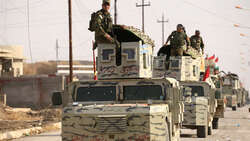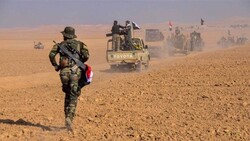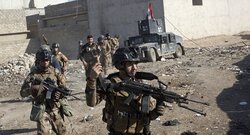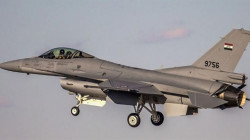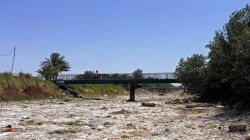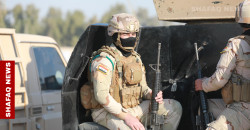Hamrin: terror zones under the dominance of ISIS gangs and security gaps
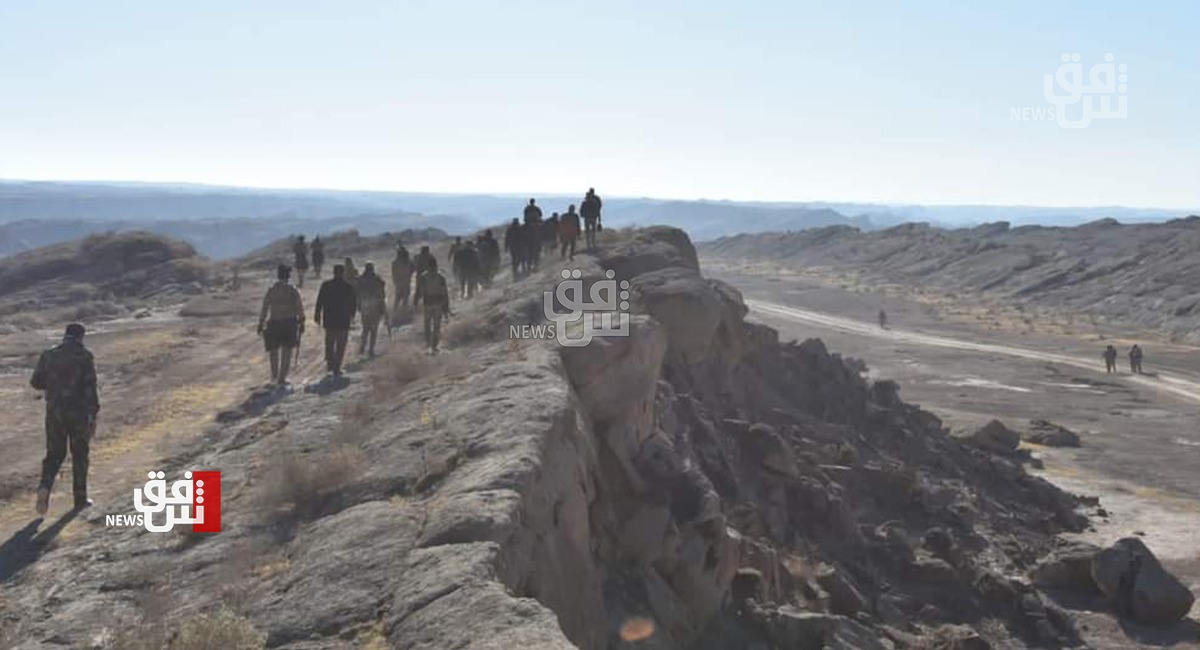
Shafaq News / Despite continuous security operations, the Hamrin basin areas, northeast of Diyala and Saladin governorates, have remained a security riddle for more than 17 years.
A senior military officer told Shafaq News Agency that the area will not be settled until the federal forces and the Peshmerga reach an agreement on the borders separating Diyala, Saladin, and Kirkuk in the north-east, as after the Peshmerga retreated, it turned into terrorist swamps.
The military Commander, who preferred to remain anonymous, pointed to the existence of open infiltration gaps between Kurdistan's border towards Khanaqin, northern Diyala, as well as the governorate's West. ISIS militants exploit those gaps to move freely, as the security operations could not address them without deploying permanent military units in coordination with the Peshmerga.
He described the security operations in these areas as open practices that drain efforts and facilitate ambushes and landmines, as happened in previous operations that left more than 30 injured and victims of the security forces about a month ago.
The Commander called for serious coordination between federal forces and the Peshmerga to end this situation in Hamrin, which hosts terrorist militants that appeared and disappeared like ghosts over the past years.
However, former Miqdadiyah council chairman Adnan al-Tamimi said that security operations in Hamrin are not feasible without installing units and ground-holding forces reinforced with mobile detachments and thermographic cameras to restrict and prevent ISIS's movements.
He also stressed the need to close the infiltration gaps from the vacant Peshmerga partitions towards Hamrin with international raids to completely destroy ISIS hotbeds and tunnels in the area with long and intense strikes.
The Hamrin threat is not limited to Diyala. It also threatens Saladin from the eastern side near Kirkuk and Diyala, according to former parliamentary security and defense committee member Jassim al-Jabara.
Al-Jabara revealed to Shafaq News agency that ISIS is present in sensitive areas as part of a strategy seeking to recreate the 2014 scenario, unless the security leadership is corrected and solutions are put in place for vacant areas, especially the Hamrin Mountains, Kirkuk outskirts, and the Makhoul Mountains.
He also called for airstrikes and a heavy military presence in ISIS's hotbeds near the Hamrin and Makhoul Mountains, which link three governorates and constantly threaten their security, in addition to transferring the military commands of operations' headquarters close to hotspots and security threat areas, to contain the danger before it occurs and to reduce the movements of ISIS's remnants.
The former security and defense committee member added that what is left of ISIS is nothing but detachments that move in the mentioned hot, vacant, and rugged areas, "which requires prior intelligence efforts ahead of military operations, away from the media and preceding announcements."
